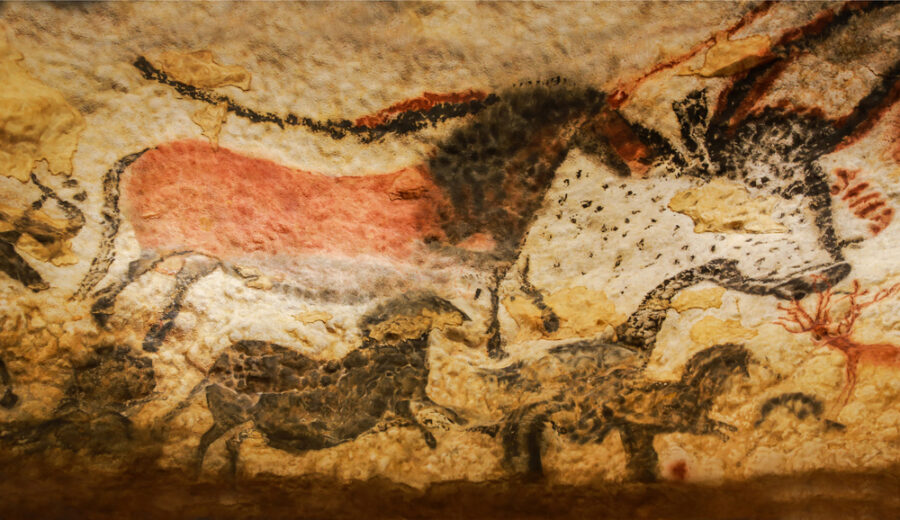Finding good friends can be a tough gig. I’m talking about the type of friend that is more than a Facebook acquaintance. I’m talking about the type of friends that you share life with in the midst of its brutal winters. But, could there possibly be anything worse than not being able to find those types of friends? The answer to this question is yes. Think of Job for a moment. He thought he had quality friends (Zophar, Bildad and Eliphaz). And yet when one of the most horrifying winter’s of life ever recorded in Scripture came to bear upon this man, those who he considered to be true friends, turned their back on him. It is one thing not to have good friends. It is something entirely other to have what you think to be good friends, only to have them turn their backs on you.
O earth, cover not my blood, and let my cry find no resting place. Even now, behold, my witness is in heaven, and he who testifies for me is on high. My friends scorn me; my eye pours out tears to God, that he would argue the case of a man with God, as a son of man does with his neighbor. For when a few years have come I shall go the way from which I shall not return.-Job 16:18-22
As the dialogue in Job progresses, the intensity with which each party holds to their positions grows noticeably. Indeed the more Job insists on his integrity, the more his friends rely on their retributive theological framework to understand his situation. Job’s friends increase their accusations against him and we see the height of their condemnation as Zophar tells Job, “Know then that God exacts of you less than your guilt deserves” (Job 11:4). Not only are Job’s friends failing to comfort, but with accusations like these, they have ultimately moved from God’s camp and into Satan’s.
In chapter 16 Job begins by telling his friends, “I have heard many such thing; miserable comforters are you all. Shall windy words have an end” (Job 16:2-3). This line ultimately sets the stage for Job’s cry later in the chapter.
However, before we get there, it is important to note something very important here in regards to those who are suffering. Often times when people are suffering, they cry out in anguish like Job is here. Those cries come from a spot of severe pain, confusion and difficulty. In these moments, those who are listening ought to remember that the sufferer is not trying to elaborate a detailed systematic theology about the nature of God and the purpose of life. Rather, they are speaking out of their pain. And any attempt to rebuke such speech, as Job’s friends did, is pointless. This is why Job asks the friends, “Do you think that you can reprove words, when the speech of a despairing man is wind” (Job 6:26)? Job’s point to his friends is that he is talking out of anguish. If they were truly wise, they would realize this and stop trying to prove him wrong. This is why Job can also describe their words as “windy” (Job 16:3); because their words don’t match the tenor of the situation.
As we pick up the dialogue in chapter 16, we note that Job’s theology has progressed significantly since chapter 9. In chapter 9 he expressed hopes of finding a mediator between him and God. But now in chapter 16, he is no longer just hoping. Now he is certain—given that his friends have only intensified their accusations—that there is in fact an advocate in heaven who testifies on his behalf (Job 16:19). What was once a hope in chapter 9, has become a sure rock in chapter 16.
This surety is ultimately born out of theological necessity. Job has started to develop numerous advanced theological ideas in order to understand how God could be just and righteous amidst his situation. Some commentators would like to say that Job questioned God’s justice but it is because of his belief in God’s justice that he develops key theological convictions that are largely absent from Jewish writings in his era. Job develops themes of mediator (9:32-35), advocate and resurrection (Job 14:7-14; 19:23-27) with an insight that is simply unprecedented for his time. Not only is his faith remarkable for someone who likely had very little access to the Pentateuch but it is also remarkable that he is able to tease out advanced theological concepts at this point in salvation history. Perhaps this is why Francis Andersen concludes that, outside of Jesus Christ, Job is the greatest believer in the entire Bible.
And in our main text, we come to one of Job’s central beliefs. Job states, “Even now, behold my witness is in heaven, and he who testifies for me is on high.” Job is sure that one stands in heaven to testify on his behalf. Again, Job certainly has no direct historical knowledge of Jesus Christ. Yet one can’t help but hear the echo’s of John saying, “My little children, I am writing these things to you so that you may not sin. But if anyone does sin, we have an advocate with the Father, Jesus Christ the righteous” (1 John 2:1). Job’s cry is but a shadow of the true substance that John is pointing to.
Recall from our passage, that this belief is stated by Job right before he tells us, “My friends scorn me.” It is the pains of having supposedly good friends turn their back on him, which leads him to a steadfast belief that there must be a Witness in heaven who understands his situation.
It is in the midst of life’s brutal winters that a firm belief must be held in the Advocate/Witness who pleads our case before the Father. David Jackson in his book Crying Out for Vindication puts it well when he says, “In the furnace of suffering, when the heavens are as brass and God seems silent—when even the scriptures seem like a barren wasteland bringing no comfort or cheer (and there are such times for the believer)—we have to know that our Mediator stands before the throne of God and speaks for us.” This is where Job has found himself at this point in the dialogue. God has become his “enemy” (Job 13:24) but his friends have also followed suit as he tells us explicitly, “My friends scorn me” (Job 16:20).
At times like these one must look to someone beyond God. One must look to the Witness who pleads before God the Father. And the identity of that Witness is Jesus Christ. He is the witness that can plead not only Job’s case, but ours as well.





Leave a Reply
Your email is safe with us.